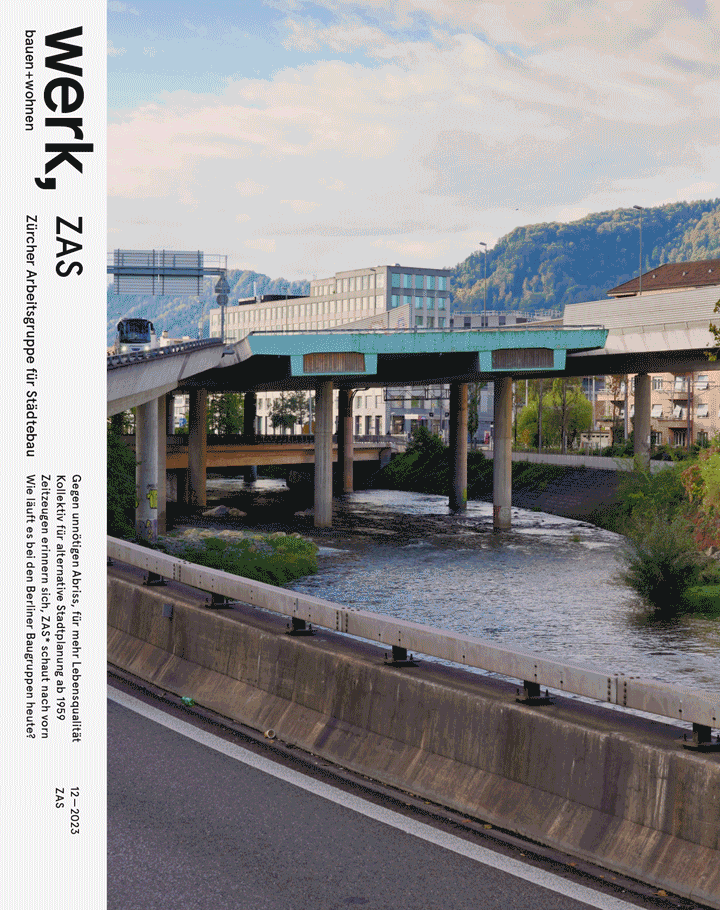werk, bauen + wohnen 12 – 2023

Commitment to a City Worth Living In
The name of the ZAS, Zürcher Arbeitsgruppe für Städtebau itself indicates its objectives. For 30 years it was committed to the development of the city of Zurich as a place for community life and urban spaces worth living in. A grouping of young architects and people from related disciplines, the ZAS protested against demolitions and oversized traffic projects. It exerted political influence and achieved media presence—but above all with both concrete and utopian proposals it repeatedly provided material for discussions about a better city. The group’s studies, projects and ideas tell of an awakening, but also of abuses in the post-war city. For the city’s future the ZAS developed pro-active, provocative, and self- assured alternatives to existing plans.
In an interview with contemporary witness Rudolf Schilling, he tells how in 1959 Rolf Keller with his determined opposition to the demolition of the Fleischhalle on Limmatquai became the group’s “primordial mother”. On reading the numerous minutes of the monthly ZAS meetings, which are kept among the papers in the gta Archive of the ETH Zurich, the zeal with which the group defined and discussed the themes of urban development and developed its own position to them becomes evident. One is somewhat astonished by how in the study “Zurich Express Roads” from 1961 the members argued for radical urban development. Yet they helped shape the change of urban paradigms of the 1970s by questioning the promises of modernism and measuring them against real needs. It is not without reason that in a review for the ZAS exhibition in 2000 Benedikt Huber emphasizes the group’s interest in preservation. It was urban development in small steps, too, that inspired members of the later ZAS, such as Peter Lanz with his work in the urban planning office from the end of the 1970s.
Although the involvement of ZAS for Zurich was local the significance of its work extends far wider: it is an indication of the health of an urban democracy if with their good suggestions protagonists from civil society can change things. That intervention in the development of the city is today more important than ever is shown by the ZAS*, a present day grouping of young architects. — Lucia Gratz